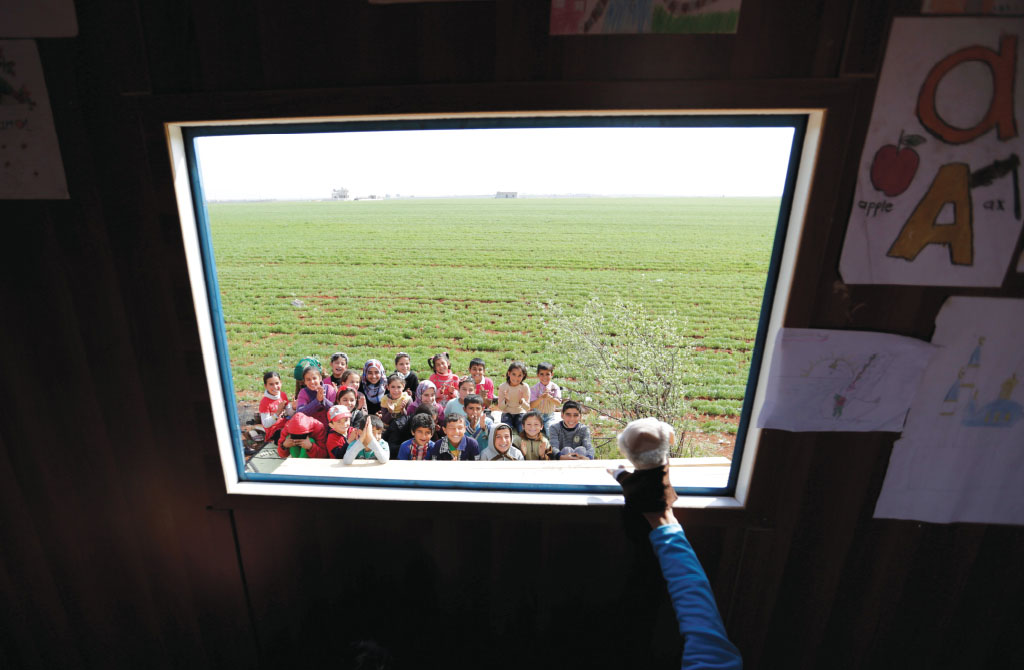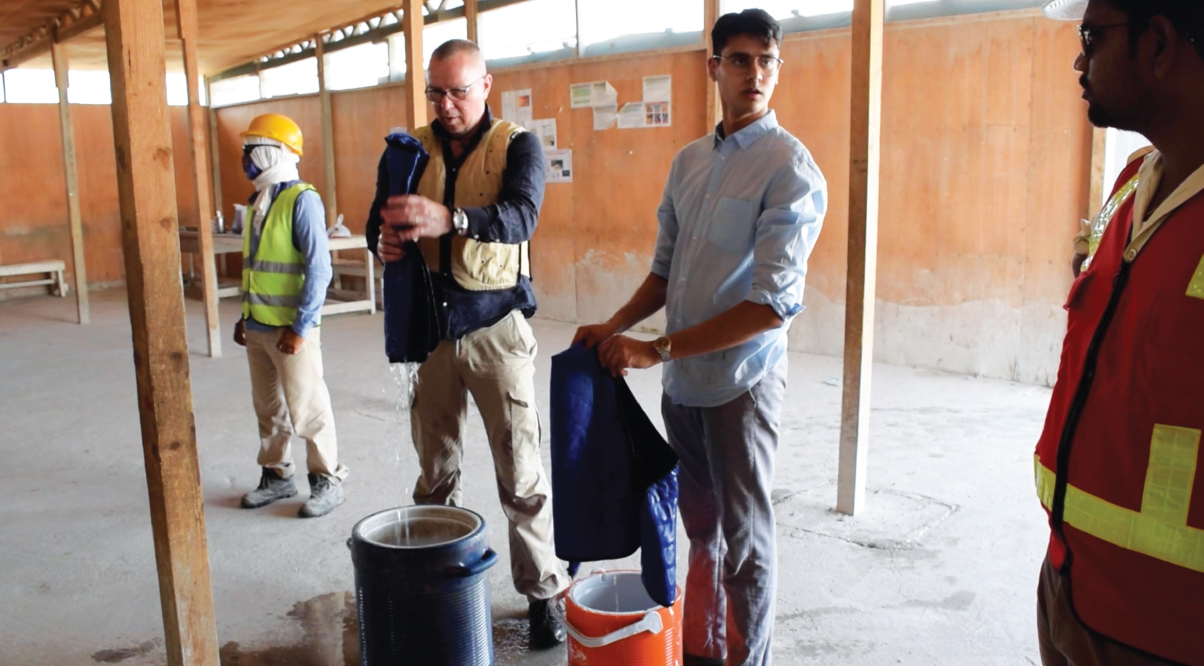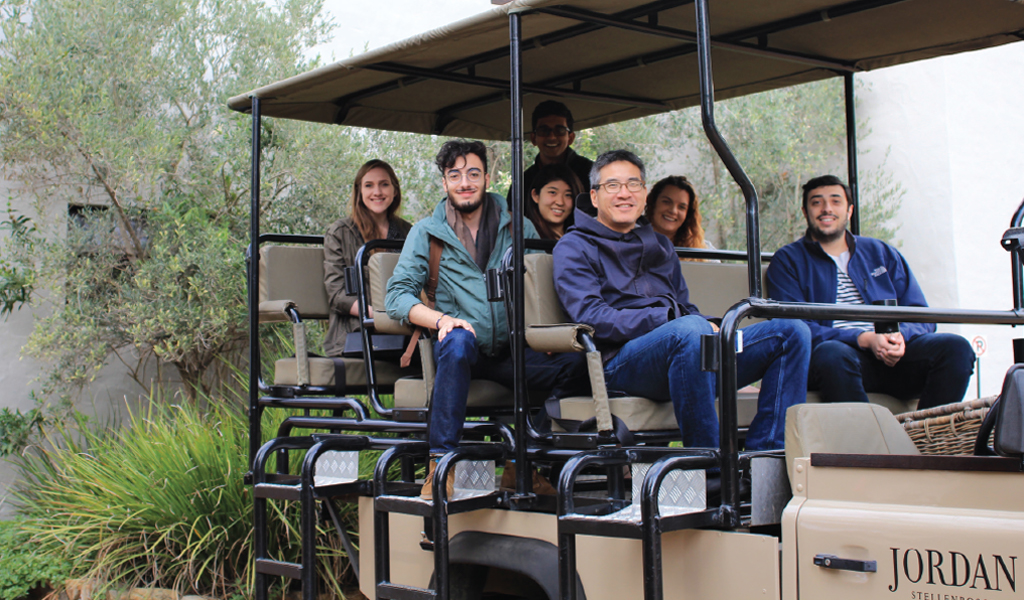
Poverty is not a shortage of funds. It’s a lack of opportunity.
Despite signs of social change that hold so much promise, the divide between rich and poor remains as stark as ever. The reasons are complex: environmental degradation, regional conflicts, oppressive regimes, narrow-interest politics, structural imbalances in the global economy. Solving such problems is far from simple. But it starts with restoring the greatest loss that poverty exacts: people’s ability to realize their own potential.
Education
In
Action

Cool Vests
When the heat-related deaths of more than 3,000 migrant workers in Qatar made international news in 2015, Adam Sheikh, a student in the Dr. David Chu Program in Contemporary Asian Studies and the Peace, Conflict and Justice program, was deeply upset and wanted to help find a solution. After winning financial support from the Richard Charles Lee Insights through Asia Challenge – a competition organized by the Asian Institute – Sheikh purchased cooling vests and in the summer of 2016 travelled to Qatar to arrange field-testing at construction sites. Joining forces with Jordan Imahori, a fellow Munk One alumnus and student in contemporary Asian studies, he formed a non-profit called AEGIS, which aims to provide the protective gear to workers across the Gulf region.
Guided by Munk School researchers Prof. Joseph Wong and Prof. Teresa Kramarz – with help from students at U of T, McMaster University and an Oakville high school, as well as generous U of T alumni – Imahori presented the team’s work at the Vatican Youth Symposium in October 2016. He will join Sheikh on a return trip to the Middle East in the summer of 2017 to further pilot the vests and build relationships with construction companies.
The project was one of four winning entries from Munk School teams in the Asian Institute’s 2016 Richard Charles Lee Insights through Asia Challenge, which is open to all interested U of T Arts & Science students. Other proposals that received funding include a summer camp for the children of migrant workers in China and a plan to distribute affordable devices to monitor and treat polluted air in India, reducing the risks to children’s health.
Research
Leadership

Poverty Within Reach
Even the most sophisticated development initiatives, from innovative policy-making to advanced uses of technology, have no real impact if they don’t reach the people who need them most. In many countries, the poorest of the poor are homeless or live in the distant countryside. They may lack formal identity documents, and many are socially marginalized because of their ethnicity or gender. As Anthony Lake, executive director of UNICEF, has said: “Our statistical national successes are masking moral and practical failures. People are left behind simply because they live in rural communities or urban slums, in conflict zones, as part of indigenous groups, with disabilities or because they are girls.”
Ensuring that health, education, social services and other development initiatives have the intended impact on their target populations is the goal of the Reach Project, led by Prof. Joseph Wong of the Munk School, with funding from the MasterCard Center for Inclusive Growth. The project recruits student researchers from many disciplines – including international relations, political science, global health, immunology, indigenous studies, economics and law – to investigate all dimensions of extreme poverty and its root causes. Unusual for such a program, the students are all undergraduates. They prepare for about 10 months before making an intensive one-week visit to their country of study; on their return, they spend another few months writing up and presenting their findings.
So far the Reach Project has produced two comprehensive case studies. The first focused on Bolsa Família, a conditional cash-transfer program in Brazil, which was profiled in last year’s annual report. In 2016, students looked at South Africa’s efforts to improve birth registration. Prof. Wong accompanied five students to Cape Town, Durban and Johannesburg, where they interviewed several dozen policy-makers and program staff.
The researchers identified a number of factors that have driven growth in demand for birth registration, including increased efforts to reach out to poor and geographically isolated communities, as well as the birth certificate requirement for enrollees in social welfare programs. Their conclusion is that streamlined administrative processes and improved access to the health system have made it far easier for parents and guardians to register their children’s births. The findings, shared in a report published in November 2016, point to potential strategies for improving registration in other communities around the globe.
Meanwhile, the Reach Project continues to gain momentum. Upcoming research destinations include India, to study a successful biometric identification program; Jordan, to examine cash transfers by the UNHCR to Syrian refugees; Thailand, to investigate the government’s success in eliminating mother-to-child transmission of HIV; and Rwanda, to study that country’s highly effective early childhood vaccination program.
“Our statistical national successes are masking moral and practical failures. People are left behind simply because they live in rural communities or urban slums, in conflict zones, as part of indigenous groups, with disabilities or because they are girls.” – Anthony Lake, executive director of UNICEF
Public
Engagement
Affairs on Film
In September 2016, the Toronto International Film Festival (TIFF) partnered with the Munk School to present the fifth annual Contemporary World Speakers series, which brings together filmmakers from around the globe and experts from the Munk School. A screening of the Israeli-French film In Between, about three Palestinian women sharing an apartment in Tel Aviv, was followed by a discussion between director Maysaloun Hamoud and Prof. Janice Stein, founding director of the Munk School. Other screenings showcased the Polish film Zaćma (Blindness), with Prof. Stephen Toope; The Patriarch from New Zealand, with Prof. Ritu Birla; the Israeli production Past Life, with Prof. Ron Levi; and the Colombian feature The Animal’s Wife, with Prof. Teresa Kramarz.


